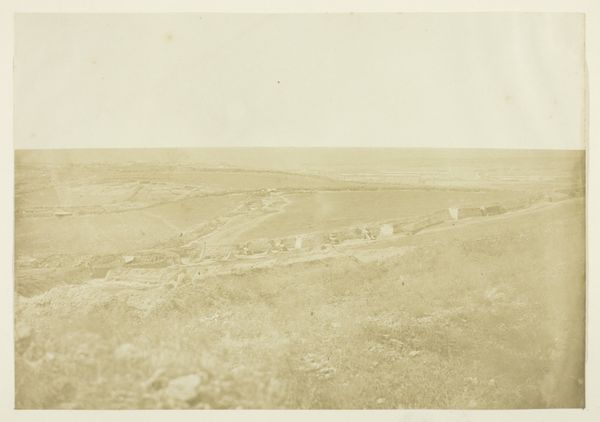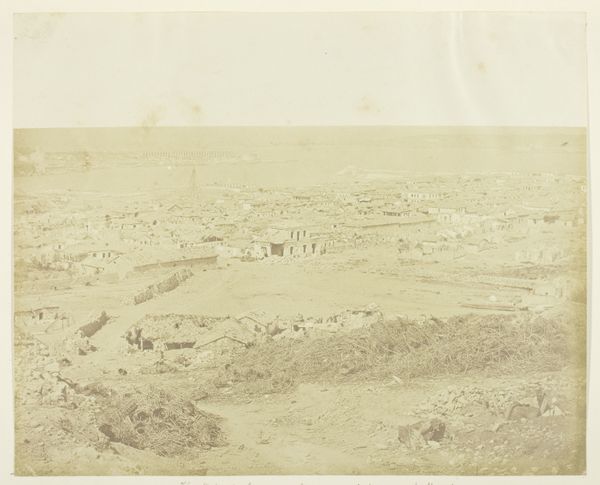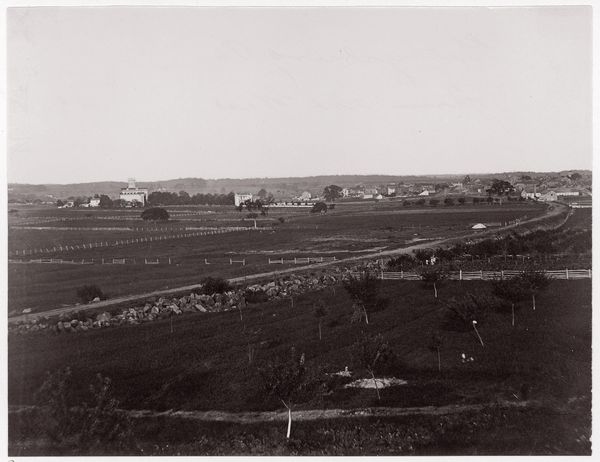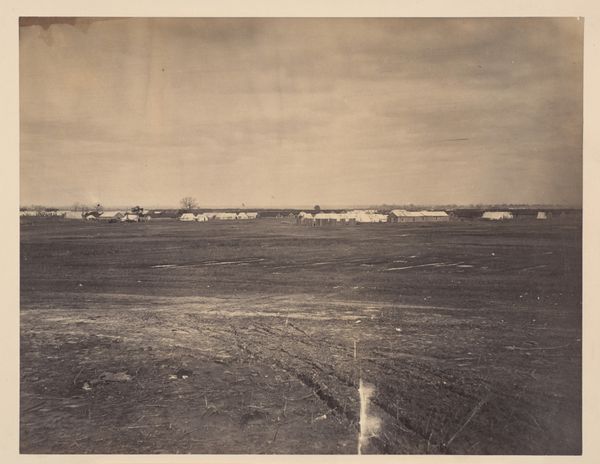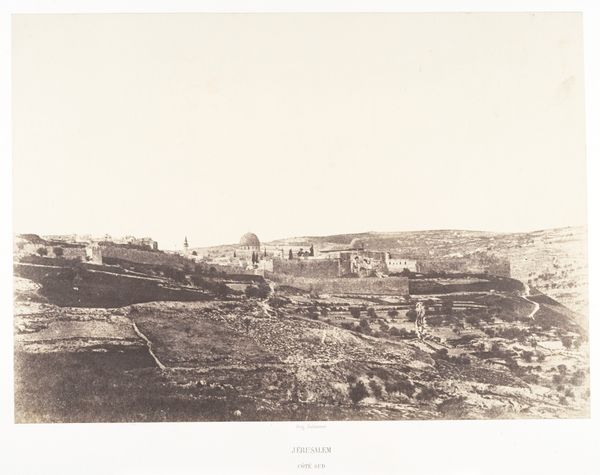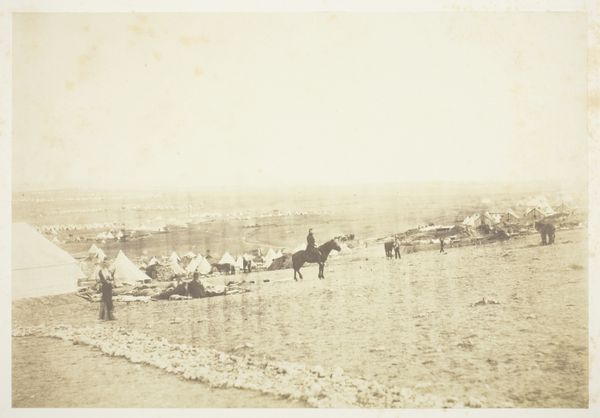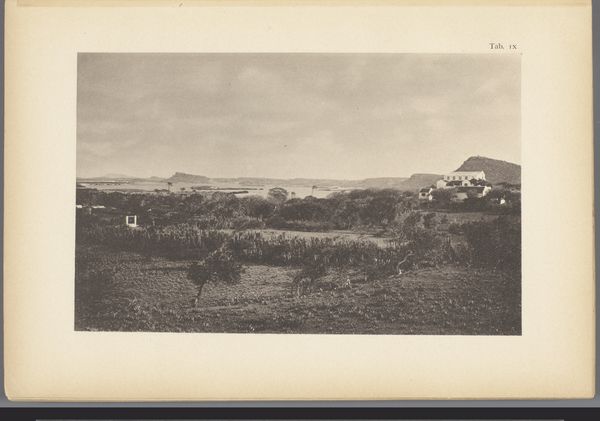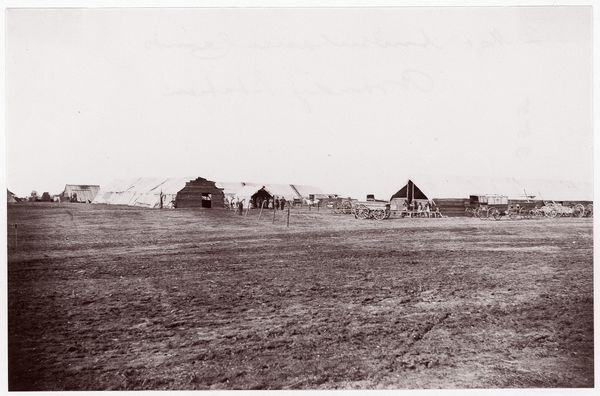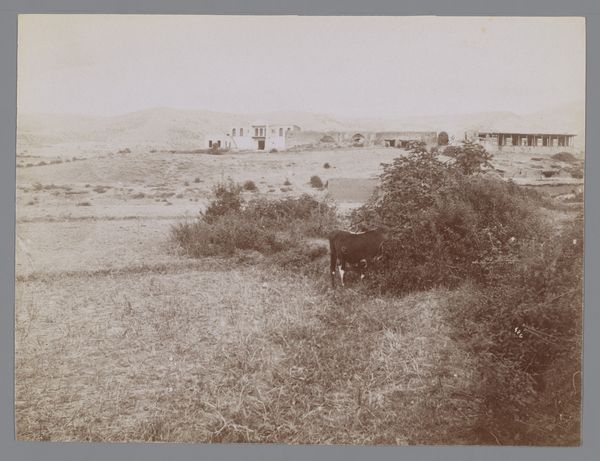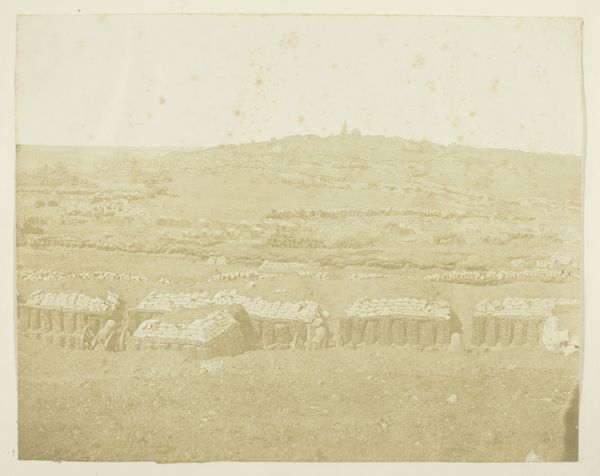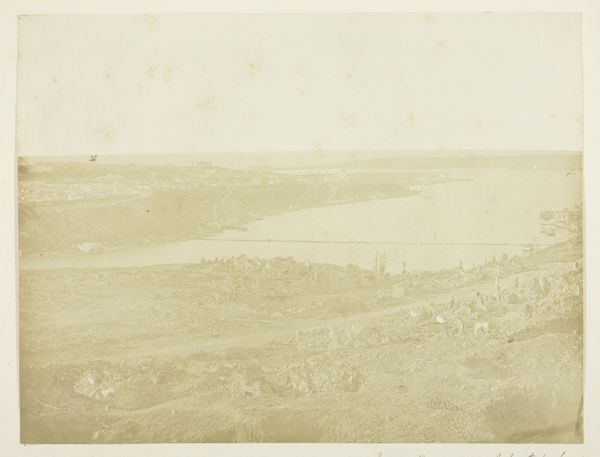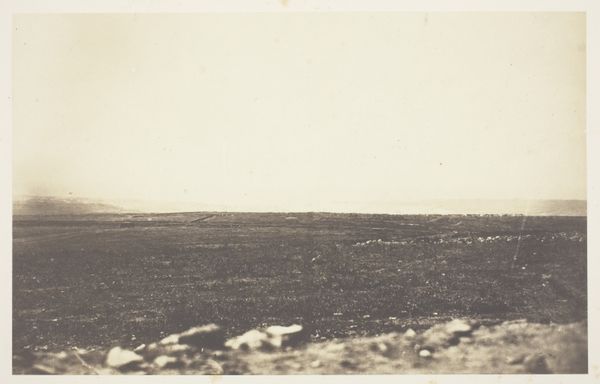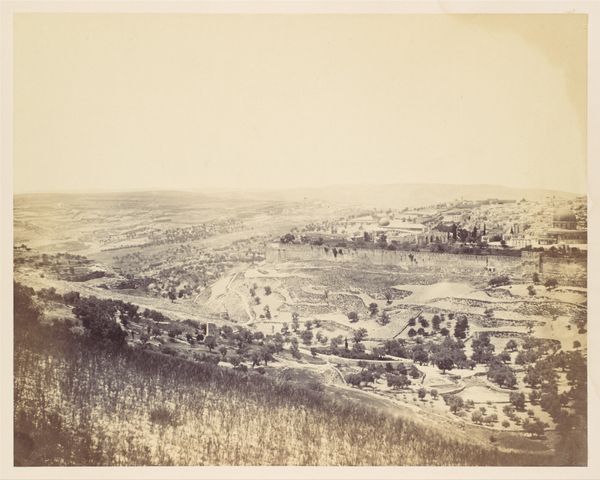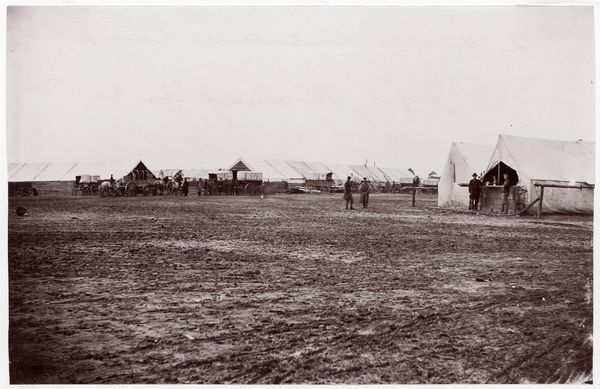
Dimensions: 22.7 × 29.5 cm (image/paper); 32.1 × 40.6 cm (mount/page)
Copyright: Public Domain
Curator: This 1855 albumen print, titled "English Left Attack" and attributed to James Robertson, offers us a glimpse into the Crimean War. What strikes you upon first seeing it? Editor: The sheer emptiness, that desolate ochre. It's surprisingly pastoral considering the title suggests… well, an attack. You expect chaos, but this is eerily serene. Curator: The "attack" here, I think, becomes internalized. The earth itself is under attack. Robertson captures the vastness of the battlefield, a land consumed. Look at how the long horizontal lines dominate; the horizon seems to press down. The war, perhaps, flattens everything. Editor: Exactly! It feels weighty, oppressive. Even the light has a yellowed, antique pall. Makes you wonder about the physical experience, the actual feeling of being there. Can you almost taste the dust in the back of your throat? It seems that tangible somehow. Curator: Early war photography was often staged or landscape-focused because of the technical limitations, I think. Yet that "emptiness" we noted speaks powerfully. Those trench lines etched into the earth--they are stark symbols of entrenchment and attrition, physically altering the land itself as if writing war onto it. Editor: And beyond that the almost invisible marks of conflict in the far distance that you would simply miss unless looking closely. The symbolism here—that landscape—suggests this is more about the lingering effect of war than a battle scene itself. The war lingers far beyond immediate actions of attacks. Curator: The albumen print process lends this image its warmth. It almost glows as it ages, preserving the weight and impact. Editor: That's such a paradox. Warmth from something that witnessed such suffering and waste. This quiet, mournful landscape… it gets under your skin, doesn't it? Curator: Indeed, and I am so grateful it has been kept by The Art Institute of Chicago so that its message can last through time. Editor: Me too! Thanks, James Robertson, for making me really feel what that place must have been like, not what you would expect it to look like.
Comments
No comments
Be the first to comment and join the conversation on the ultimate creative platform.
